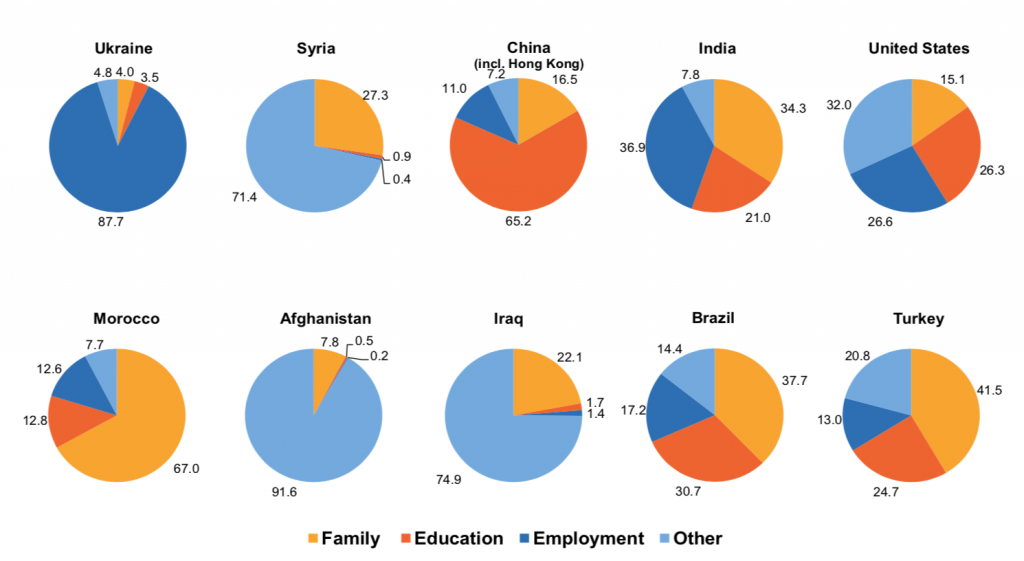The Eurostat has published the first residence permit statistics issued by EU member states.
In 2017, about 3.1 million first residence permits were issued in the European Union (EU) to non-EU citizens, according to Eurostat. The number increased almost by 4% (or 112 000) compared with 2016.
- Employment reasons accounted for almost one-third (32%) of all first residence permits issued in the EU in 2017,
- Family reasons for 26%,
- Education reasons for 17%, and
- Other reasons, including international protection, for 24%.
The Highest number of first residence permits issued in Poland, Germany and the United Kingdom
In 2017, first residence permits was issued in
- Poland (683 000, or 22% of total permits issued in the EU),
- Germany (535 000, or 17%), the
- United Kingdom (517 000, or 16%),
- France (250 000, or 8%), Spain (231 000, or 7%),
- Italy (187 000, or 6%) and Sweden (130 000, or 4%).
Compared to the population of each Member State, the highest rates of first resident permits issued in 2017 were recorded in
- Malta (23 permits issued per thousand population),
- Cyprus (22),
- Poland (18),
- Sweden (13) and
- Luxembourg (12)
Highest residence permits went to Ukrainians for employment, Chinese for education and Moroccans for family reasons

Citizens of
- Ukraine (662 000 beneficiaries, of which almost 88% in Poland) continued to receive the highest number of permits in the EU,
- Syria (223 000, of which almost two-thirds in Germany),
- China including Hong Kong (193 000, of which almost half in the United Kingdom),
- India (163 000, of which 44% in the United Kingdom) and the
- United States (147 000, of which over half in the United Kingdom),
- Morocco (108 000, of which 41% in Spain) and
- Afghanistan (87 000, of which around 61% in Germany).
Note:
First residence permit means a residence permit issued to a person for the first time. A residence permit is considered as a first permit also if the time gap between the expiry of the previous permit and the start of validity of the new permit is at least 6 months.
Residence permit means any authorisation valid for at least 3 months issued by the authorities of a Member State allowing a non-EU citizen to stay legally on its territory. When national laws and administrative practices of a Member State allow for specific categories of long-term visa or immigration status to be granted instead of residence permits such visas and grants of statuses are also included in these statistics.
Statistics on first residence permits presented in this report refer to non-EU citizens only and include persons subject to an authorisation to stay with a validity of at least 3 months and consequently these statistics are different than statistics on migration to the reporting countries (according to migration statistics a migrant is a person who stays or intends to stay in the country for at least 12 months).
Other reasons include permits issued for residence only (e.g. pensioners with sufficient financial means), international protection status (including refugee status and subsidiary protection), humanitarian reasons, permits issued to non-asylum related unaccompanied minors, victims of trafficking in human beings and other reasons not specified (e.g. beneficiaries of national regularisation programmes).
Read more here





